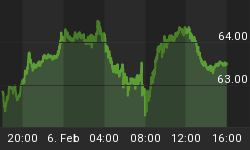Last week the House passed yet another bill placing sanctions on Iran and Syria, bringing us closer to another war in the Middle East. We are told that ever harsher sanctions finally will force the targeted nations to bend to our will. Yet the ineffectiveness of previous sanctions teaches us nothing; in truth sanctions lead to war more than they prevent war.
Until last year, Libyan sanctions were touted as a great success story. The regime would change its behavior. Yet NATO bombed the country anyway.
Last week we learned that President Obama signed an intelligence "finding" directing the CIA to covertly assist rebels in Syria. The administration seems determined to fight yet another war in Syria that has nothing to do with American national interests.
We already know that a similar "finding" was signed under the latest Bush administration directing US intelligence to undermine the Iranian government and promote regime change there. Neoconservatives have long demanded that we overthrow the Syrian government before moving on to war against Iran. This bellicosity continues regardless of which party is in the White House.
In Syria we see once again we see how our interventionist policies backfire and make us less secure. Recent news reports point to ties between the Syrian opposition and al-Qaeda (and other extremist groups). A recent article in the Guardian, a British newspaper, exclaimed that, "Al-Qaida turns tide for rebels in battle for eastern Syria." The article quotes an al-Qaeda leader in Syria saying that he meets with the main US-backed Syrian rebel organization, the Free Syrian Army, "almost every day." So by promoting civil war in Syria we end up fueling al-Qaeda.
According to another recent press report, German intelligence services estimate that nearly 100 terrorist attacks have been committed by al-Qaeda or related organizations in Syria over the past six months. Last month a suicide bomber in Syria killed a defense minister and several top government officials. The US government, which has been fighting a "War on Terror" for more than a decade now, refused to condemn that act of terrorism.
This raises the question of whether the US administration is supporting the same people in Syria that we have been fighting in Iraq and Afghanistan. Secretary of State Hillary Clinton expressed these same concerns earlier this year when asked whether the US has been reluctant to arm the Syrian rebels. She answered, "To whom are you delivering them? We know al-Qaida. Zawahiri is supporting the opposition in Syria. Are we supporting al-Qaida in Syria?"
That is a very good question. It clearly demonstrates that the United States has no business at all being involved in the Syrian civil war. In the 1980s we supported a resistance movement in Afghanistan that later gave birth to elements of al-Qaeda and the Taliban. When will we learn our lesson and stop intervening in conflicts we don't truly understand, conflicts that have nothing to do with American national interests?















